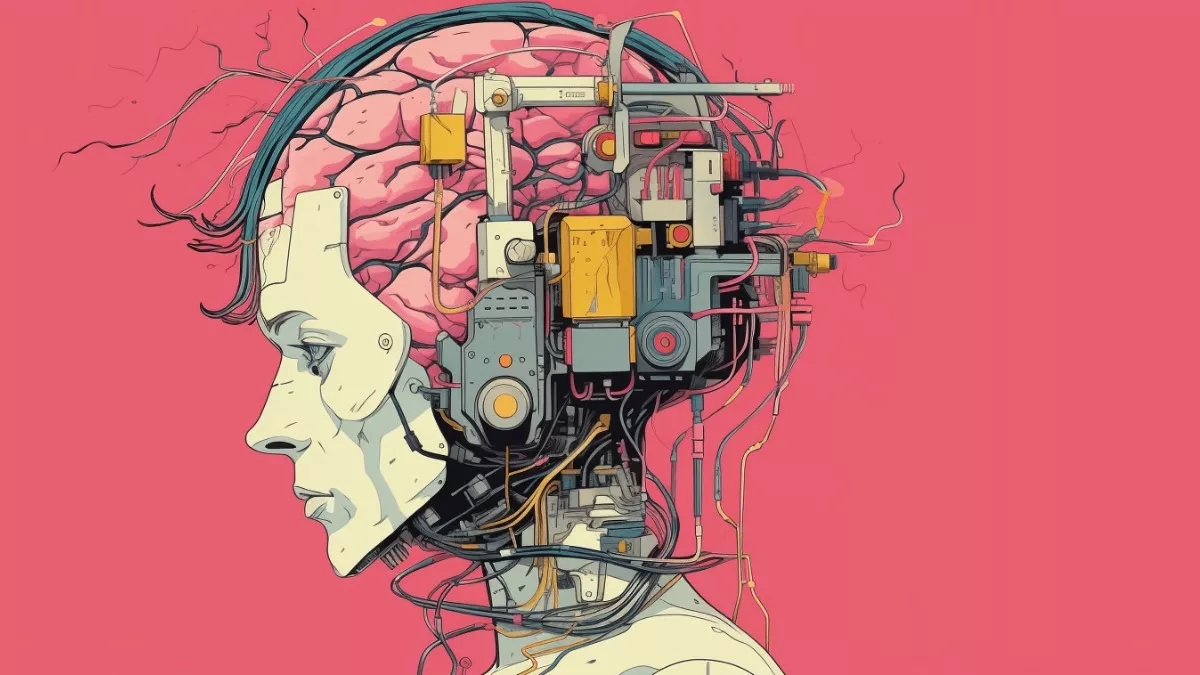
Human Brain Cells Chip
Recent advancements in computing have strived to emulate the human brain’s unparalleled processing power, yet the gap remains vast. Enter Brainware, developed by a team led by engineer Feng Guo at Indiana University Bloomington. Combining actual human brain tissue with electronics, Brainoware tackles tasks like speech recognition and mathematical predictions, representing a promising step toward a novel computing paradigm.
Although slightly less accurate than traditional hardware with artificial intelligence, Brainoware demonstrates a crucial first move towards a new computer architecture. However, ethical considerations are paramount. Lena Smirnova, Brian Caffo, and Erik C. Johnson from Johns Hopkins University emphasize the need for ethical awareness as this technology advances.
Guo’s team utilised human pluripotent stem cells to grow brain organoids, mini-brains mimicking the brain’s structure and connections. These organoids, devoid of consciousness, provide a unique platform for studying brain development and function.
The researchers coaxed human pluripotent stem cells into developing various brain cell types, forming three-dimensional mini-brains called organoids. These organoids, while lacking consciousness, serve as intricate models for studying brain development. Brainware incorporates these organoids connected to microelectrodes, using reservoir computing to process information. Electrical stimulation transports data into the organoid, where it undergoes processing before being expressed as neural activity.
Also Read: Nvidia Funded 35 AI Companies in 2023 to dominate the technology landscape
In testing, Brainoware exhibited impressive capabilities. After being trained for just two days, it identified specific speakers with 78% accuracy from audio clips. When asked to predict complex dynamical systems, Brainoware outperformed certain artificial neural networks with significantly less training time, showcasing its adaptability and learning potential. Download the Research Papers
However, challenges persist, including maintaining organoid health and power consumption concerns. Despite these limitations, Brainoware’s ethical considerations loom large.
Also Read: Top 5 Deep Fake Videos of 2023: YoY 3000% Fraud Increased
The integration of brain tissue with electronics raises pivotal questions about ethical boundaries and implications. Smirnova, Caffo, and Johnson highlight the potential for foundational insights into learning mechanisms, neural development, and neurodegenerative diseases. They note Brainoware’s potential in preclinical models for testing therapeutics and understanding cognitive impairments.
Brainoware may pave the way for comprehensive biocomputing systems in the future, although significant hurdles and ethical deliberations must be addressed. As this research progresses, it promises a deeper comprehension of the human brain’s mysteries, potentially revolutionising both computing and neuroscientific understanding.
During a conversation with content creator Varun Mayya, Sundar Pichai covered a wide range of…
Bill Gates posts, “This is a book that everyone serious about education should read. Sal…
Colorado passes SB205, the first comprehensive AI discrimination law in the U.S., aiming to prevent…
AI pioneer Geoffrey Hinton warns of job losses and inequality due to AI, urging governments…
Learn how RAG enhances the accuracy and relevance of generated content by dynamically integrating specific…
Discover the process of Bitcoin mining, where transactions are verified and added to the blockchain,…